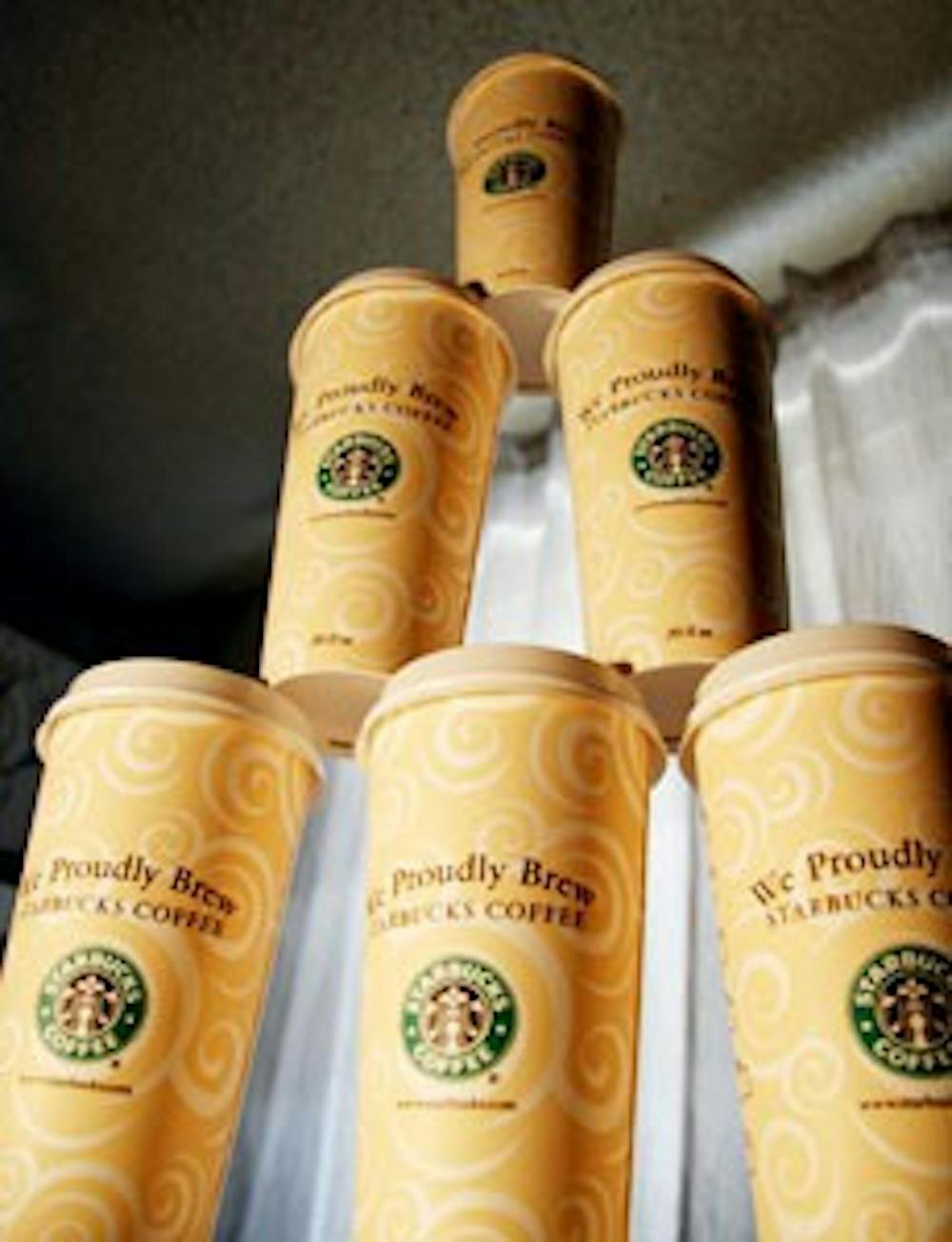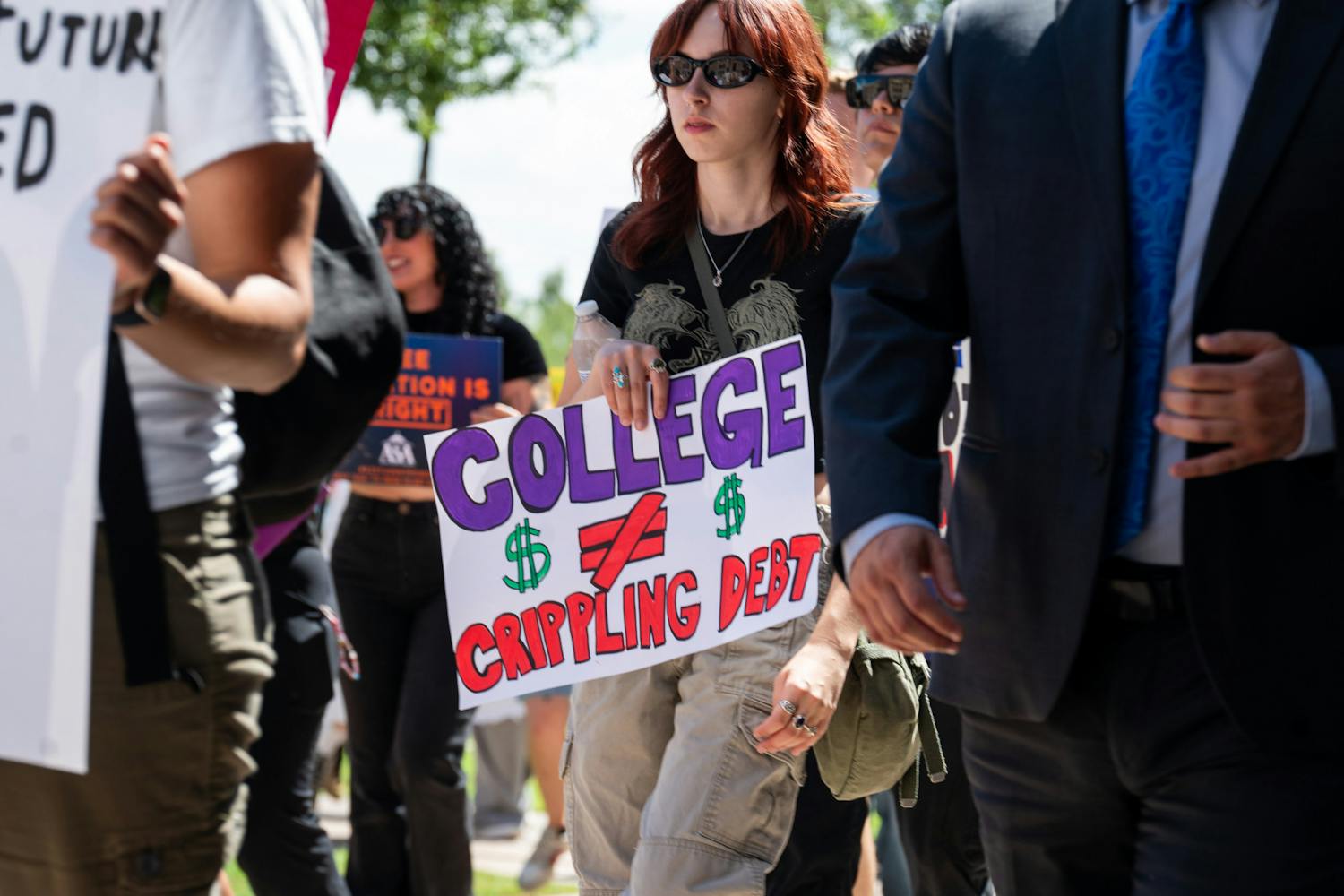For ASU senior Matt Linden, Starbucks is not just a coffee shop, it's an experience.
When Linden studies or does homework, he prefers the laid back, jazzy atmosphere of Starbucks to the deafening silence of the library.
"It's a good place to study and read a book," Linden says. "It's quiet enough, but it's not the library."
Linden is one of many students lured by the appeal of soft music, pumpkin spice lattes and a mellow, sophisticated atmosphere.
It might not be long before people all over the world will have access to this environment.
Starbucks Corp. recently announced that they plan on expanding to 40,000 locations worldwide.
The coffee chain presently has 12,000 coffee shops worldwide and opens about five new stores daily around the globe.
Four of those locations reside at ASU, with coffee shops in the W.P. Carey Business School, Memorial Union, campus bookstore and Palo Verde East residence hall.
In addition, Gourmet Grounds cafe has two coffee stands on campus that sell Starbucks products.
Even though the company has a high concentration of coffee shops in certain areas of the country, Starbucks representatives are not concerned with the over-saturation of their coffee shops.
"Starbucks growth is based on demand and input from our customers, and we open stores where our customers want and expect us to be," says Nancy Beccerra, director of Starbucks business development in the western United States.
Some ASU students also don't have a problem with the amount of Starbucks on campus or its expansion.
"If it's being demanded, why not serve it?" says business and communication senior Shalia Barrett. "They're a global business. It's their right."
Barrett admits, however, that there are already enough Starbucks coffee shops on campus and the company does not need to add anymore at ASU.
For Starbucks to continue their success, the company has to capitalize on its worldwide appeal, says ASU marketing professor Jim Spiers.
Spiers recalls a recent trip to China where the people were proudly showing off their Starbucks.
"It's not just a U.S. thing. It's worldwide, and that's to their advantage," he says.
There is enough room in the worldwide marketplace for the company to expand without tripping over itself, he added.
"They have found a good formula that seems to work," Spiers says.
That formula includes distinguishing themselves from other coffee shops by creating a culture where people view the product as a symbol of status.
"It's not a standard cup of coffee, it's a prestige cup of coffee that comes with a prestige price," he says. "There is an ego involved."
Even though the coffee is expensive, it is still affordable enough to make this sophistication accessible to the common person, Spiers says.
"You can get into the game and it is not that expensive for you," he says. "You can be with the in-crowd for $3."
Business freshman Elee Lew compares Starbucks' green siren logo to the golden arches of McDonalds.
"Starbucks is a symbol," Lew says. "It's become so well known, it's almost like a way of fitting in."
Not only has Starbucks made its product into a status symbol, they have changed the way people order coffee, says finance senior Hunter Fallin.
"Instead of saying small coffee, it's a grande or a venti," Fallin says. "They accessorize coffee."
The company's wealth allows them to expand and pick the best locations, he adds.
"Whoever has the money will get the best real estate and we're going to have to buy what's available," Fallin says.
Even though many people are drawn to the prestige and culture of Starbucks, some people still want to have a variety of places to choose from.
Tempe resident John Akins prefers Coffee Plantation because "they make the best coffee in the neighborhood.
"It's just a uniqueness here that I like," he says.
Akins says it's natural for people to want to have choices. "The true nature of the American psyche is very much pluralistic and joyful in diversity of choices," he says.
But Akins doesn't have an aversion to Starbucks.
"When this place is backed up, I'll go down to Starbucks."
Reach the reporter at: jamar.younger@asu.edu.




